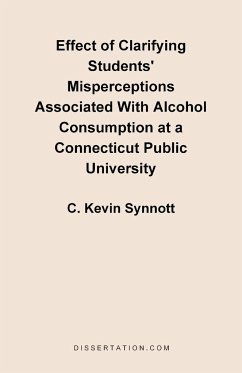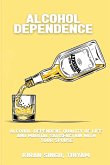The purpose of this study was to examine the effect of clarifying students' misperceptions regarding their peers' consumption of alcohol and feelings of comfort in drinking situations. Quantitative and qualitative approaches were used to determine if providing students with information would impact on their perceptions. A posttest-only control-group experimental design was employed to investigate the efficacy of clarifying students' misperceptions. The experimental group was provided with information gleaned from the literature regarding students' misperceptions. Participants were administered a questionnaire developed for this study to determine: (a) their drinking habits (i. e., frequency and quantity), (b) how comfortable they feel in drinking situations, (c) their perceptions regarding their peers' drinking habits, and (d) their perceptions regarding how comfortable their peers feel in drinking situations. The findings included: (a) students overestimated the alcohol consumed by their peers; (b) students inaccurately believed that their peers are more comfortable in drinking situations than they are themselves; and (c) information appears to have clarified female students' misperceptions associated with feelings of comfort in drinking situations. A theory grounded in reality (Corbin







